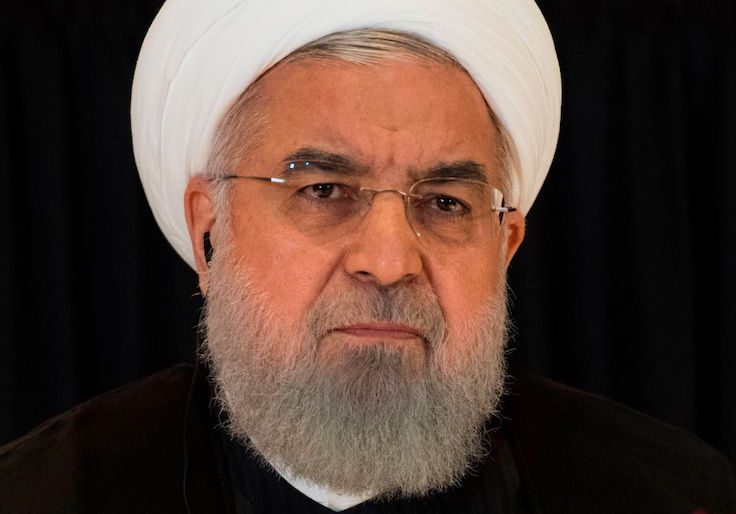The New York Times recycled analysis of the Trump administration's claims of Iranian bellicosity, publishing two pieces just months apart raising questions about whether President Donald Trump's accusations against the Khamenei regime could be trusted given his tendency to stretch the truth.
In a "New Analysis" piece back in June, Times White House correspondent Peter Baker wrote that, "As Trump Accuses Iran, He Has One Problem: His Own Credibility." Days earlier, the United States had accused Iran of attacking two oil tankers in the Persian Gulf.
"For any president, accusing another country of an act of war presents an enormous challenge to overcome skepticism at home and abroad," Baker wrote. "But for a president known for falsehoods and crisis-churning bombast, the test of credibility appears far more daunting."
Baker turned to former Obama State Department spokeswoman Jen Psaki for comment, who argued that "Trump's credibility is about as solid as a snake oil salesman."
Fast forward three months, and the Times's eminent national security correspondent David Sanger is double dipping in today's paper with his own "News Analysis" titled "Trump's Challenge: Can His Word on Iran Be Trusted?" On Monday, of course, Trump accused Iran of a Saturday attack on Saudi oil fields.
"For a president with a loose relationship with the facts and poisonous relationships with allies, the attack on the Saudi oil fields poses a challenge: how to prove the administration's case that Iran was behind the strike and rally the world to respond," Sanger wrote.
Sanger also turned to a former Obama diplomatic official for analysis, this time former deputy secretary of state Wendy Sherman, an architect both of the Iran deal and the failed Clinton administration North Korea nuclear deal.
"Painfully, the word of the president will be suspect," Sherman said, adding that Trump's "hyperbole and outright fabrications through a daily tweet diet" leaves him "little credibility with Congress, allies and partners, let alone the American people."
Back in June, the Washington Post cribbed from the Times's analysis and released its own piece two days later, noting that the standoff with Iran exposed "Trump's credibility issue" and "Trump's lack of credibility."
Days later, German chancellor Angela Merkel agreed there was "strong evidence" of Iran's culpability.
